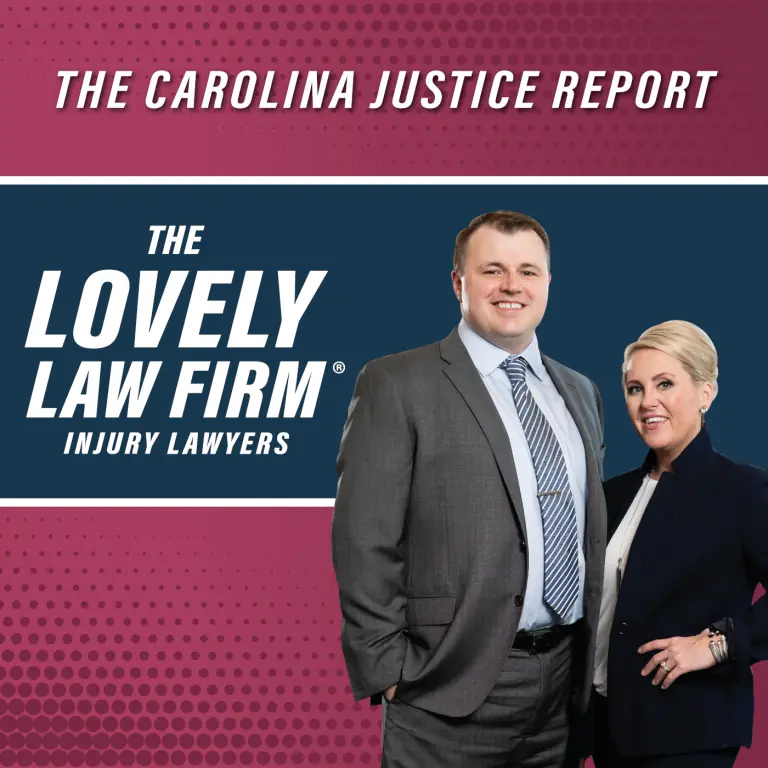Bond Hearings in Myrtle Beach Detention Center
After you are processed into J. Reuben Long Detention Center, for most charges you will be given a brief appearance in front of the Magistrate Judge to have your bond set. It is important to get a criminal defense lawyer to handle your bond hearing in order to attempt to obtain a reasonable bond or personal recognizance bond for your charges. Serious Felonies require a bond set by the General Sessions judges and cannot be set at the jail Courtroom by a Magistrate. Currently Bond Hearings are being held twice daily at 9:00A.M. and at 3:30 P.M. Depending on the time if day your are booked and processed you will have your bond hearing at one of these times. Myrtle Beach City Jail performs their bond hearings usually once in the mornings. Other smaller municipalities will have varying times. The Bond Hearings Lawyers can brief the family member of the ins and outs of the bond hearing process.
Conduct of Bail/Bond Hearing
The bail and bond hearings proceeding is frequently the first contact between the accused and a judicial officer, with respect to the particular offense(s). For this reason, the bond proceeding is a
very important phase of the criminal process, though it has never been held to be a stage at which the accused has the right to be represented by counsel. The accused may have his attorney present, but he has no absolute right to be represented.
At the time of the bond hearing, the accused should be given certain information and be informed of certain rights. The judge should explain the nature of the charge(s) against the accused, being certain that he fully understands the charges, and the possible penalties involved.
The accused should be informed that he has the right to remain silent, and that anything he says can be used against him in a court of law. He has the right to talk to a lawyer, and have a lawyer present at any time during interrogation or questioning by law enforcement officers. He should be informed that if he would like to be represented by a lawyer, but cannot afford one, a lawyer will be appointed to represent him. He need not talk to any law enforcement officers after he says that he would like to have a lawyer present, or that he does not wish to say any more.
Pursuant to South Carolina Rules of Criminal Procedure Rule 2, when a magistrate or municipal judge conducts a bail proceeding for an accused who is to be tried in general sessions court, that judge must inform the accused of his right to request a preliminary hearing. The notice must be provided both orally and in writing. The judge must also provide the accused with a simple form for requesting a preliminary hearing, which the accused need only sign and return to the judge.
The judge should notify the defendant that he has a right to be present at his trial, and that the trial will proceed in his absence should he fail to attend the court. (Rule 16, South Carolina Rules of Criminal Procedure). The defendant acknowledges in writing that he has received such notice when he signs the bond form. If he fails to so acknowledge receipt of the notice, the judge should file a statement, in writing, that he has so notified the defendant of these rights.
Factors to Consider at Bond Hearings
§ 17-15-10 et seq. requires that certain findings and inquires be made.
§ 17-15-30(A) provides that in determining which conditions of release to impose, the magistrate or municipal judge may take into account the nature and circumstances of the offense charged, family ties of the accused, employment, financial resources, character, mental condition, the length of his residence in the community, his record of convictions, and any record of flight to avoid prosecution or failure to appear at other court proceedings.
§ 17-15-30(B) requires that the court consider the accused’s criminal record, if any, charges pending against the accused at the time release is requested, all incident reports generated as a result of the offense charged, if available, and whether the accused is an alien unlawfully present in the United States, and poses a substantial flight risk due to his status.
§ 17-15-30(C) provides that prior to or at the time of the hearing, law enforcement, the local detention facility officer, or local jail officer attending the hearing shall provide the court with the following information if available: the accused’s criminal record, any charges pending against the accused at the time release is requested, all incident reports generated as a result of the offense charged, and any other information that will assist the court in determining conditions of release.
§ 17-15-30(D) provides that the law enforcement officer, local detention facility officer, or local jail officer shall inform the court if any of the information required in subsection (C) is not available at the time of the hearing and the reason the information is not available. Failure on the part of the law enforcement officer, local detention facility officer, or local jail officer to provide the court with the information required in subsection (C) does not constitute grounds for the postponement or delay of the hearing.
§ 17-15-30(E) provides that a court hearing this matter has contempt powers to enforce these provisions.
When considering the release of a person on bond who is charged with a violent offenseas defined in § 16-1-60, and the person is a household member as defined in § 16-25-10, and the person: (1) is subject to the terms of a valid Order of Protection or Restraining Order of this State or another state; or (2) has a previous conviction involving the violation of a valid Order of Protection or Restraining Order of this State or another state, § 16-25-120 requires that the court consider the following factors for release of that person on bond: (1) whether the person has a history of criminal domestic violence or a history of other violent offenses; (2) the mental health of the person; (3) whether the person has a history of violating Orders of a court or other governmental agency; and (4) whether the person poses a potential threat to another person. Additionally, when considering release of a person on bond under this section, the court must consider whether to issue a Restraining Order or Order of Protection against the person, using the criteria described above. If the court determines that such an Order is appropriate, it should issue the Order or forward the matter to the appropriate court.
In the cases of bonding individuals charged with harassment or stalking, a magistrate or municipal judge may order a defendant to undergo a mental health evaluation, performed by the mental health department, to determine if the defendant needs mental health treatment or counseling as a condition of bond. The evaluation must be scheduled within ten days of the Order of issuance. Upon completion of the evaluation, the examiner must report his findings, within forty-eight hours, to the local solicitor’s office or summary court judge, for consideration by the bonding judge.
Under §17-15-10, any person charged with a non-capital crime must be released pending trial on his own recognizance without surety, unless the judge determines that such release(1) would not reasonably assure the appearance of the accused at trial, or (2) would result in an unreasonable danger to the community. “Release on his own recognizance” means that the accused does not have to have sureties, but must be released if he signs an unsecured bond in the amount specified by the magistrate. The accused does not have to be actually worth the amount which the judge sets in cash or property, nor does he have to get a surety who is worth that amount in order to obtain his release. The amount set in the recognizance is simply an acknowledgment of an indebtedness to the state in the amount specified, which becomes absolute if the accused fails to comply with the conditions imposed.
Unless the magistrate or municipal judge can make a determination that the defendant falls within one of the two exceptions: (1) there is reason to believe that the defendant will not appear at his trial, or (2) he would create an unreasonable risk to the community, no conditions can be imposed on his release except that he should personally appear at subsequent proceedings in the case, should remain on good behavior, and should not depart the state. § 17-15-20.
If the magistrate or municipal judge determines in a noncapital case that the defendant’s release on his own recognizance would not reasonably assure his appearance, or would result in unreasonable danger to the community, the defendant still has a constitutional right to bail, but the judge may impose any one or more of the conditions listed in §17-15-10:
(a) require the execution of a bond with good and sufficient sureties;
(b) place the accused in the custody of a designated person or organization agreeing to supervise him;
(c) place restrictions on the travel, association or place of abode of the accused during the period of release; and
(d) impose any other condition deemed reasonably necessary to assure appearance, including a condition that the person return to custody after specified hours.
If the magistrate or municipal judge finds that an unconditional release would create an unreasonable risk of flight or would create a risk to the community, and also finds that a secured bond is the best condition suited for the case, the defendant may come up with one of several kinds of security which the judge must accept. The defendant may obtain a commercial security, or he may find friends or relatives who can act as surety for him.
A magistrate or municipal judge may accept a real property interest as security for a bail bond. The defendant may be permitted to deposit cash or negotiable securities, such as a certified check, equal to the amount of the bond. State v. Harrelson, 211 S.C. 11, 43 S.E.2d 593 (1947). “South Carolina does not permit any judge to require that bond be in cash.” 1973 S. C. Op. Atty. Gen. 55. In cases of state or municipal motor vehicle violations, §17-15-230 requires that a magistrate or municipal judge accept, in lieu of cash bail or bond, guaranteed arrest bond certificates, in an amount not to exceed $1,500, issued by an automobile club or association. However, these certificates are unacceptable when the offense is driving under the influence of intoxicating liquors or drugs or for a felony.
§14-1-214 authorizes the payment of fines, fees, assessments, court costs, and surcharges by credit card or debit card. This authority would include bond payments. That statute authorizes the imposition of a fee, which may be retained by the County, for processing payment by credit card. The fee should not exceed the amount to wholly offset the cost of processing the credit card payment.







